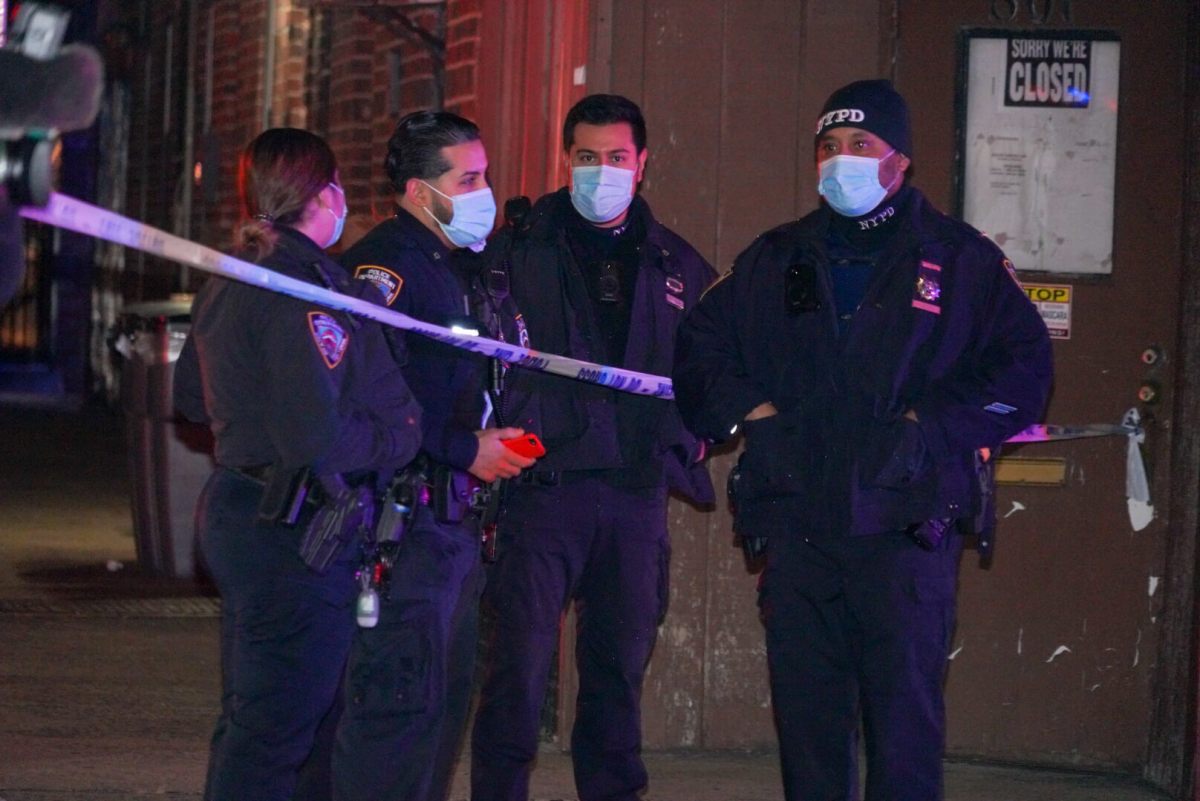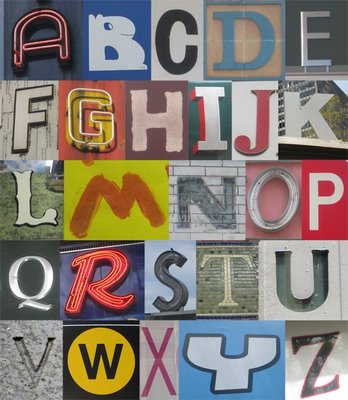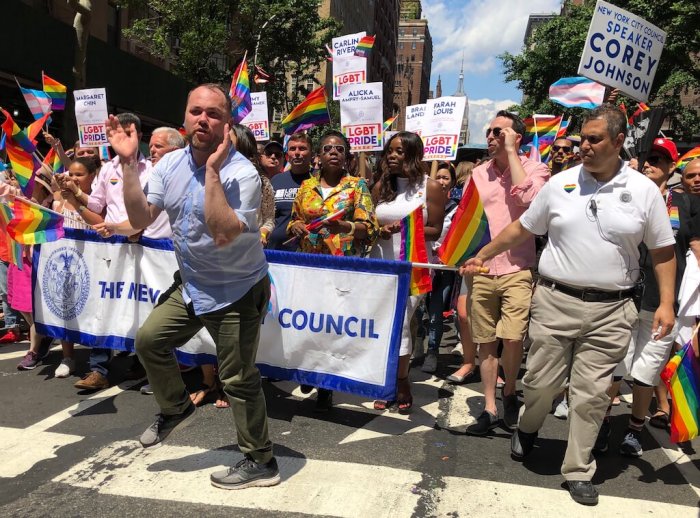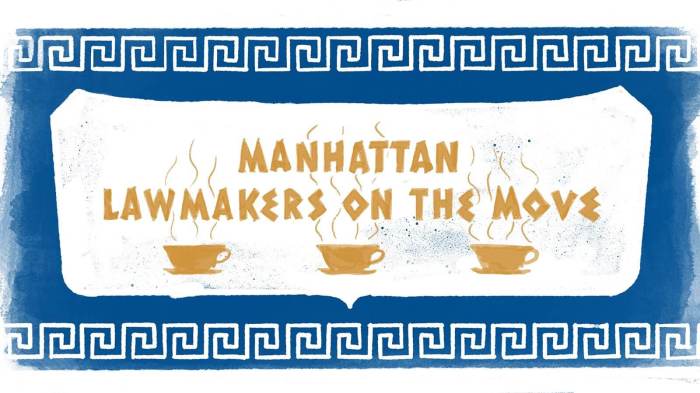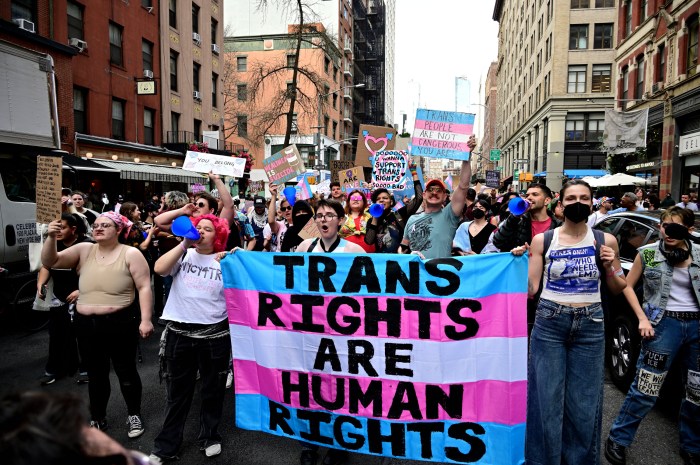The City Council approved Thursday a number of long-sought police reforms in New York City, along with several resolutions seeking further changes from Albany.
Included among the approved bills was the prohibition of qualified immunity for police officers in New York City — the first American city to do so, according to City Council Speaker Corey Johnson.
The legislators were also expected to back a resolution supporting an amended version of a police reform plan that the de Blasio Administration submitted earlier this month. Johnson acknowledged that the plan wasn’t everything some lawmakers wanted, but that the legislature was up against the clock — as an April 1 mandate from Governor Andrew Cuomo loomed.
Last summer, Cuomo issued an executive order requiring all localities in the Empire State to pass a police reform plan by April 1 of this year — lest they risk losing state funding in the new budget.
“This plan is far from perfect, but I think we as a Council did the best we could under an extraordinarily difficult timeline,” Johnson said during his remarks at the March 25 stated meeting. It’s expected to pass later Thursday, although some members bristled that the de Blasio plan did not go far enough to reform the NYPD.
Among the police reform bills the City Council approved included Intro. 2212-A, sponsored by Bronx Councilwoman Vanessa Gibson, which clarifies the authority of the Civilian Complaint Review Board to investigate complaints of racial profiling and bias-based policing, as submitted by members of the public. The legislation also empowers the CCRB to investigate the past professional conduct of any NYPD member found to have engaged in bias.
Thirty-six of the 49 City Council members who voted in Thursday’s session approved the bill, with 12 opposed to it and one voting to abstain.
Another bill — Intro. 2220-A, sponsored by Brooklyn Councilman Stephen Levin — ends qualified immunity for police officers, which Johnson said has been “rooted in our nation’s systemic racism.”
Qualified immunity gives police officers exemptions from civil lawsuits even if they have violated a plaintiff’s constitutional rights. If police are able to show that there is no past case dealing with the specific misconduct at issue, then they will generally be entitled to qualified immunity. The legislation passed in the City Council effectively ends this for cases involving unreasonable searches and seizures and cases involving excessive force (whether it involved a search or seizure or otherwise).
The legislation passed with the support of 37 City Council members against 11 who opposed it and one who abstained.
A third bill — Intro. 2224-A, sponsored by Queens Councilman Adrienne Adams — mandates that the NYPD issue a quarterly report on all vehicle stops that officers make. The department would also need to provide data on the number of summonses issued, arrests made and vehicles seized, and document incidents involving search or use of force. They must also break the data down by various demographics, including race, age and ethnicity of drivers stopped.
The City Council also approved two resolutions calling on the state legislature to approve legislation giving the CCRB final authority in discipline cases involving NYPD officers, and for requiring newly-hired NYPD officers to live within the five boroughs.
Finally, the Council also approved legislation supported by Manhattan Councilman Ydanis Rodriguez (Intro. 2224-A) establishing a crash investigation and analysis unit with the Department of Transportation. This will shift the liability for serious crash investigations away from the NYPD’s Collision Investigation Squad, though police will continue to conduct criminal investigations.
The police reform plan that de Blasio presented and the City Council voted to support, however, did not meet the muster of the Legal Aid Society.
“Mayor de Blasio had a genuine opportunity to implement urgently needed policing reforms. He failed to do that and instead produced a plan that at best glosses over the deeply rooted systemic problems within the NYPD that plague the New Yorkers we serve,” said Tina Luongo, attorney-in-charge of the criminal defense practice at the Legal Aid Society. “We need to move beyond this failed process, listen to the demands of impacted communities for investment in non-police resources for improving public safety, and acknowledge that true change cannot be built on ‘reforms’ that entirely fail to address the underlying and long-standing problems.



